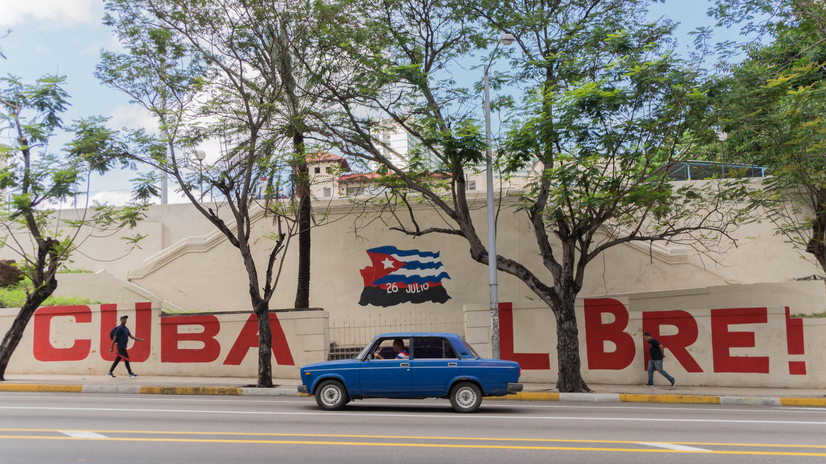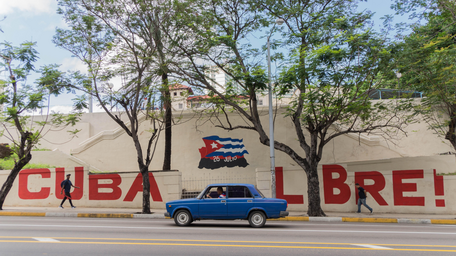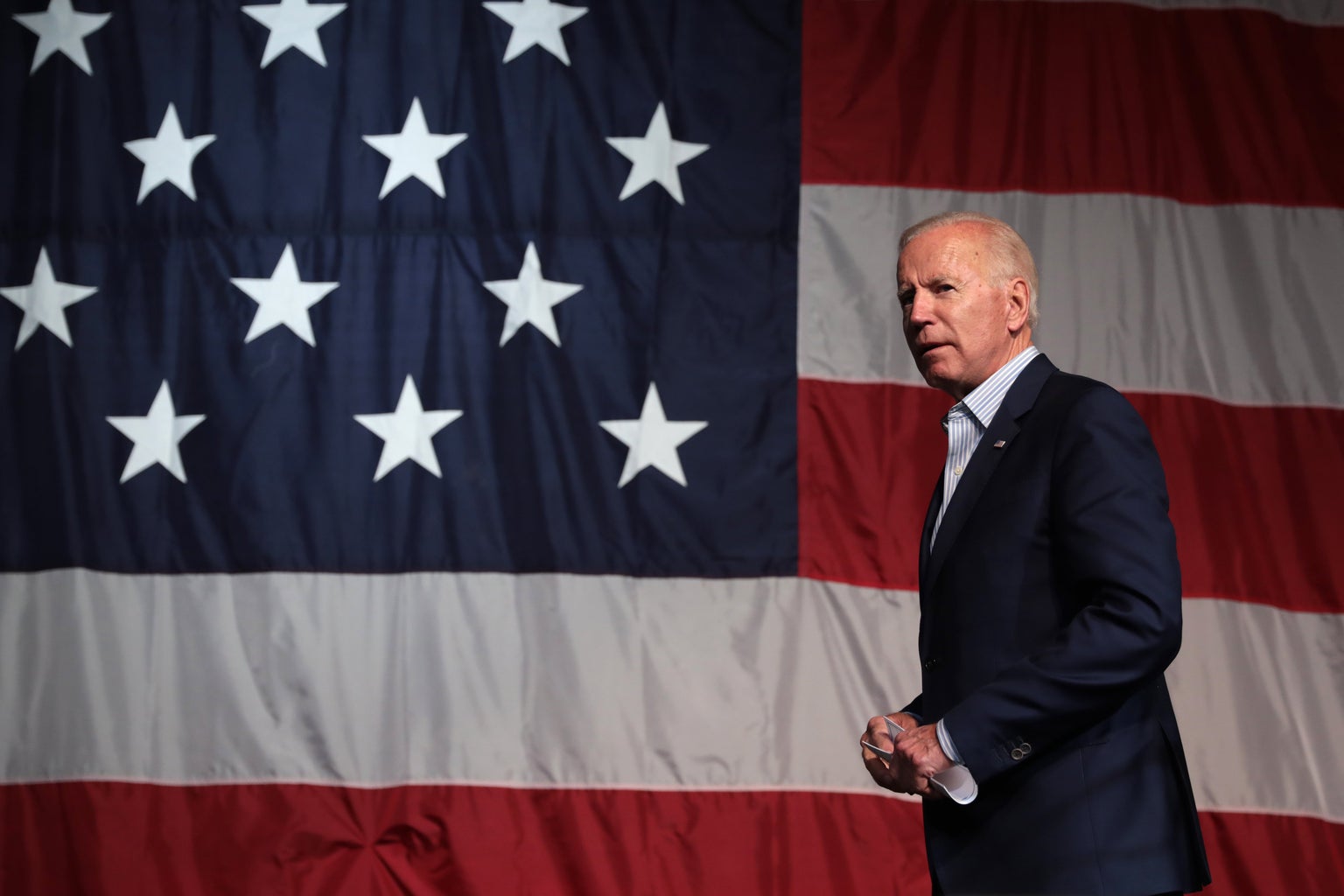In July the Cuban population took to the streets to protest against the government of Miguel Díaz-Canel. The protests, which were the largest on the island for more than 60 years, took place amid record records of cases and deaths from Covid-19 in the country since the pandemic began.
Faced with the intense repercussions that the demonstrations had, not only in Cuba but also worldwide, the Cuban president said that “all of Cuba’s problems come from the embargo”. The embargo, cited by Canel, is the economic, trade, and financial embargo imposed on Cuba by the United States in 1960, after the Cuban Revolution, and is the longest-lasting in modern history.
As a result, many discussions and questions have been raised around the embargo, its history, and the current impacts on economy and development. Therefore, in this article, we will answer and explain the main points to be taken into consideration when debating the subject, with the contribution of Joana Salém, historian, PhD in economic history, professor at Faculdade Cásper Líbero, Master in Economic Development and researcher of subjects related to Latin America, with a focus on Cuba and the Cuban Revolution.
Embargo or blockage: which word is more appropriate?
Before we go into the details, the historian points out that the best term to define the US attitude towards the Cuban economy is blockade. This is because, according to her, the idea of an embargo is to represent a punctual sanction and, in this case, what the United States does with Cuba does not fulfill this role, but represents a systemic blockade.
The United States not only decides that the country will not have relations with Cuba, but it also affects the relations of other countries and companies from other countries with the island through a system of blackmail.
Joana Salém
This system of blackmail precedes the existence of the blockade itself, but it will be explained later in this article.
The history of the United States and Cuba: when did the relationship become so complicated?
Salém explains that relations between the countries have been controversial since the Spanish-American War – a war resulting from the United States’ intervention in Cuba’s War of Independence. Since then, the North American country assumes a hierarchical and imperialistic posture in relation to the island.
Cuba was the last Spanish colony to become independent. In the middle of the 19th century, the Cubans tried to gain their independence from Spain, but the independentists were defeated by the Spanish crown in 1878. So they reorganize abroad and start a new wave of wars, between 1895 and 1898, until the United States interferes, resulting in the Spanish-American War, which ends in 1902 with the American victory.
“It was the US that managed to expel Spain from Cuba from a military point of view, but they ended up neo-colonizing and controlling Cuban territory. The US troops did not leave Cuba immediately and the US developed a rhetoric of guardianship of Cuba, as if the country needed them to become independent, which in itself is a contradiction,” Salém says.
From this, the Platt Amendment is attached to the Cuban Constitution: the measure establishes that Cuba cannot carry out any kind of international relations with other countries without first consulting the United States, and also establishes that the US has the right to invade the island militarily at any time.
As a result of the oppressive stance adopted, some anti-imperialist movements arose in Cuba, until culminating in the guerrilla struggle of the 1950s, which overthrew the Batista Dictatorship, supported by the United States and its Central Intelligence Agency (CIA).
With the overthrow of Fulgencio Batista, the US influence is completely shaken in Cuba, and the country tries to recover its power by any means: “In 1959, the US tries by any means possible to retake that power, first by mercenary troops, as in the Bay of Pigs invasion in 1961, and with sabotages and fires set by airplanes that invaded Cuban airspace and threw inflammable materials in the sugarcane fields, and the workers had to put out the fires”, she concludes.
As a response to the Cubans’ quest for national sovereignty, the United States finally signs the economic embargo against the country.
Why was the embargo (or blockade) created?
“The embargo that turned into a blockade was applied against Cuba as a measure of US revenge against the Revolution, because the Cuban Revolution, in its measures of social justice and distribution of the country’s economy and wealth, expropriated a number of US properties that belonged to banks and large business groups, which were large corporations that profited from the poverty of Cubans,” analyzes Salém.
The historian adds: “There at the beginning of the Cuban Revolution, in 1959, the first gesture, from the beginning of the blockade, was that the US refused to buy three million tons of sugar, which was very important for Cuban exports – and this gesture had already been used as blackmail at other times in the history of the island, only at this time, the government, the Cuban Revolution, did not give in to this blackmail, which resulted in the expropriation of US properties, lands and companies.”
It was a series of neocolonial domination ties that the US had established with Cuba until 1959 that were broken as well, so the US does not accept it as much from the point of view of the material loss that this represented, as from the ideological point of view.
Joana Salém
Thus, signed six decades ago, the embargo grew progressively until it became a blockade, after measures taken by presidents Eisenhower and Kennedy, who consolidated and hardened it. In this way, for Salém, “the blockade spreads and becomes a structure of geopolitical and economic suffocation of Cuba as a kind of revenge for its conquest of national sovereignty.”
What does the blockade hold up to this day?
The blockade adopted by the United States is extremely unpopular among the international community. Since 1992, at the United Nations General Assembly, a vote has been held on the issue, where only two countries vote in favor of the measure: the United States and Israel. In 2019, Bolsonaro’s Brazil, contrary to the country’s historical position, also voted in favor of the blockade.
“The embargo is sustained to this day because to this day the US does not accept the existence of Cuban national sovereignty and does not view Cuba as a country deserving of equality in international relations. The US still sees Cuba as a country that would perhaps be inferior and does not deserve the treatment of an independent country. Therefore, it uses the rhetoric that Cuba is an authoritarian country that violates human rights to try to justify the unjustifiable,” the historian points out.
The world repudiates the embargo because, according to Salém, it can identify the contradictions in the US rhetoric: “Within the US itself there are many human rights violations. The US accuses Cuba of violating human rights, but it also does it. Currently, according to the non-governmental organization Feeding America, there are more than 30 million hungry Americans, which represents 3 hungry Cubas inside the US.”
In addition to this widespread rhetoric, two laws sanctioned in the Bill Clinton administration legally sustain the blockade against Cuba: the Torricelli Act of 1992 and the Helms-Burton Act of 1996. Both laws establish various types of sanctions for companies that have dealings with Cuba and create a system of blackmail against these companies, because not only would they have to pay fines and other types of penalties, but the US itself would block them if they had dealings with Cuba.
Moreover, the Torricelli Act also determines that the blockade can only be lifted by a vote of the U.S. Congress, which Salém says is unlikely to happen, because even the Democratic Party has historically been in favor of the measure.
How does the blockade impact Cuba’s economic development, and how does the country circumvent these difficulties?
Salém explains that three main problems in Cuba were triggered by the blockade: the scarcity of consumer goods, the scarcity of fuel and a low productivity economy.
Consumer goods, especially medicines, which belong to big pharmaceutical industries linked to the logic of US capital, are difficult to access for the Cuban population. To try to combat these difficulties, the Cuban government has developed a state-owned biotechnology industry which, despite being limited and facing many challenges, has managed to produce the only Latin American vaccine against Covid-19.
Fuel is another recurring problem on the island, and as Salém reminds us, fossil fuels are the mainstay of an economy. Moreover, the historian recalls that the international relations that Cuba assumed with other countries were based on anti-blockade stances and ideological affinities.
In this case, the USSR helped Cuba with the supply of fuel and, after the country’s fall, Chavez’s Venezuela began to supply this shortage, but with the crisis in the Venezuelan country, which rose between 2013 and 2014, Cuba’s access to such resources became even more limited. To try to get around the situation, Cuba has created a renewable energy program in recent years, but it runs into high prices for solar panels and, for its implementation, the country depends on the importation of technologies that are blocked by the United States.
“The US is a country that has 300 million people, while Cuba has 11 million. So business people also end up being blackmailed into participating in a much larger market, which is the US market, and not choosing Cuba as a trade destination”, Salém considers.
How have the Obama, Trump and Biden administrations positioned themselves towards Cuba?
During the Obama’s government, the removal of the blockade on Cuba became a political agenda, because the US president changed the country’s foreign policy and even went to Cuba and shook hands with then Cuban president Raúl Castro – a symbolic gesture that had not occurred since before the Cuban Revolution.
The Trump administration, however, has regained the strong policy with the tightening of the blockade and the implementation of 243 new measures that, Salém points out, has made life very difficult for Cubans living on the island, as they have prevented remittances from Cubans living in the United States who send money to their families in Cuba. In addition, companies and agencies that delivered the remittances were sanctioned and had to close because of the blockade.
Currently, Biden had not put the issue on the agenda, so there is no expectation of the blockade falling in the short term and, according to the historian’s analysis, when it comes to Cuba, the current administration is closer to Trump than to Obama.
Joana Salém ends by analyzing why Cuba bothers the US so much until today: “The US does not accept Cuban national sovereignty and material losses still seem to be an issue between the US and Cuban-Americans who have their old property titles wanting to recover their private and private wealth. Cuba bothers the US for being a country that has created a society, a social and economic system antithetical to US values. And that bothers even because of the proximity and the history of domination that the US had with Cuba, which was a history of complete domination – geopolitical, economic, ideological and values.”
—————————————————————–
The article above was edited by Gabriela Sartorato.
Liked this type of content? Check Her Campus Casper Libero home page for more!




